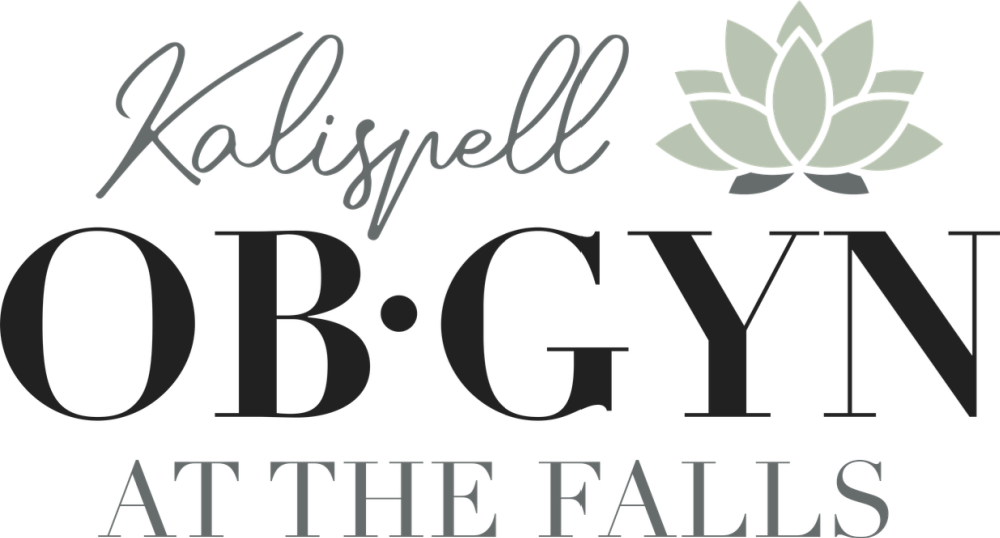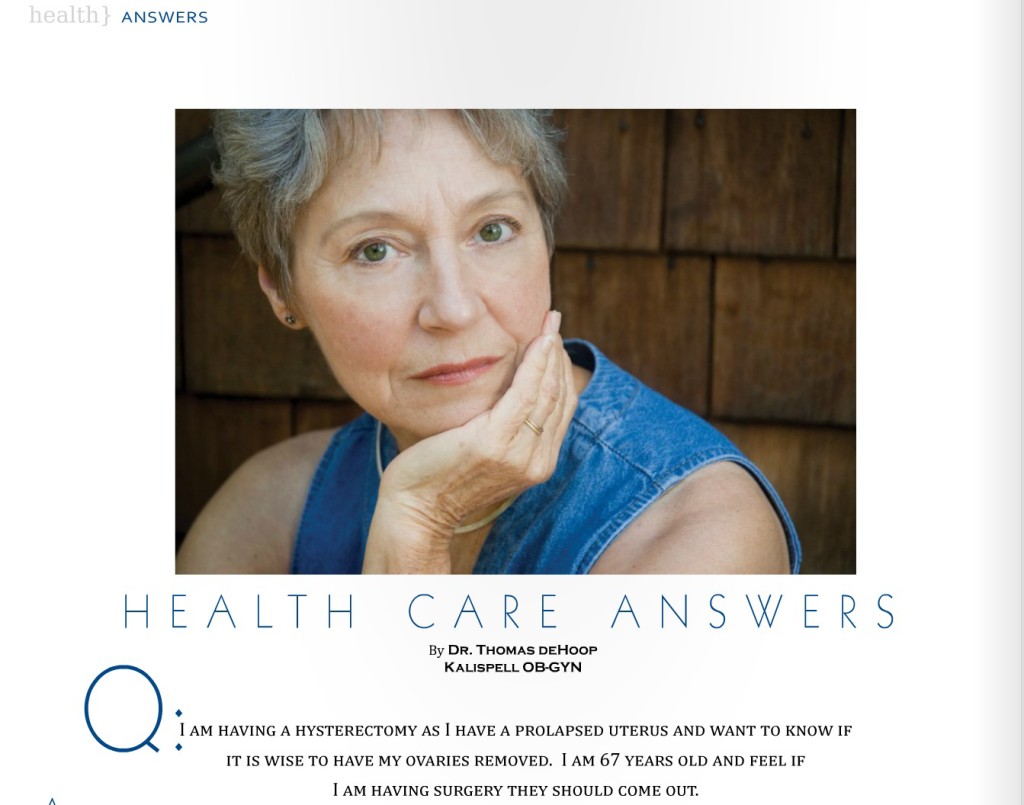Q: I am having a hysterectomy as I have a prolapsed uterus and want to know if it is wise to have my ovaries removed?
By Dr. Thomas deHoop / Kalispell OB/GYN
A:
The answer is dependent on a few factors such as age, family history, risk of heart disease and osteoporosis with age being the most significant. You have to balance the risks of removal (premature menopause) against therisks of leaving the ovaries in place. After ovarian removal, ovarian hormones levels diminish and fall to the levels found in a postmenopausal woman and this is considered surgically induced menopause.
This loss of ovarian hormones in the premenopausal woman will lead to hot flashes and vaginal dryness. More importantly, since ovarian estrogen helps prevent bone lost and has protective effects on the heart, premenopausal women who have their ovaries removed will have accelerated bone loss, increased risk of osteoporosis (weakened bones) and increased risk of heart disease.
Studies have shown that long-term survival is improved by keeping the ovaries at the time of hysterectomy in a premenopausal woman. Some studies even show benefit when the ovaries are preserved until 65 years of age. Therefore, ovarian preservation provides many benefits in the premenopausal woman. If the ovaries are removed in a postmenopausal woman,the reduction in hormones is less significant.
 Dr. deHoop is a regular contributor to Health Care Answers for the 406 Woman Magazine.
Dr. deHoop is a regular contributor to Health Care Answers for the 406 Woman Magazine. PLEASE NOTE: This information is not intended to be medical advice. It is general health information and does not take into account your particular health status nor is it a substitute for personal medical care. Kalispell OB/GYN shall not be liable for any damages arising out of the use of the content herein.

